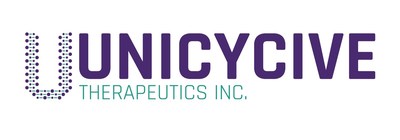Unicycive Announces Renazorb Pre-clinical and Clinical Data Selected for Presentation at National Kidney Foundation Spring Clinical Meeting
Unicycive Therapeutics (Nasdaq: UNCY) announced that two abstracts highlighting the efficacy and safety of Renazorb (lanthanum dioxycarbonate) will be presented at the National Kidney Foundation (NKF) Spring Clinical Meeting from April 6-10, 2022, in Boston. Renazorb aims to treat hyperphosphatemia in chronic kidney disease patients, utilizing advanced nanoparticle technology for better phosphate binding. The data presented will support Renazorb's potential as a leading phosphate binder with fewer dosage pills required.
- None.
- None.
Insights
Analyzing...
LOS ALTOS, Calif., Feb. 2, 2022 /PRNewswire/ -- Unicycive Therapeutics, Inc. (Nasdaq: UNCY), a clinical stage biotechnology company developing therapies for patients with kidney disease, today announced the acceptance of two abstracts supporting the potential efficacy and safety of Renazorb (lanthanum dioxycarbonate) to be presented as posters at the National Kidney Foundation (NKF) Spring Clinical Meeting taking place April 6-10, 2022 in Boston. Renazorb is a second-generation lanthanum-based phosphate binding agent utilizing proprietary nanoparticle technology being developed for the treatment of hyperphosphatemia in patients with chronic kidney disease (CKD).
"The NKF Spring Meeting offers an ideal opportunity to share the favorable results from two important studies on Renazorb with the nephrology community," said Shalabh Gupta, M.D., Chief Executive Officer. "These supportive data form the foundation of what we believe will be a best-in-class product profile for Renazorb that leverages the high phosphate binding capacity of lanthanum in a smaller tablet form that is conveniently swallowed rather than having to be chewed."
The following Renazorb abstracts have been accepted for presentation at the NKF Spring Clinical Meeting:
Poster Title: "Lanthanum Dioxycarbonate Effectively Reduces Phosphate in Healthy Volunteers"
Poster # 10213
Date/Time: Thursday, April 7, from 6:00pm – 7:30pm Eastern Time
Poster Title: "Lanthanum Dioxycarbonate is Safe in Dogs"
Poster # 10217
Date/Time: Thursday, April 7, from 6:00pm – 7:30pm Eastern Time
About Renazorb (lanthanum dioxycarbonate)
Renazorb is a non-aluminum, non-calcium, phosphate binder manufactured using a patent-protected nanotechnology process. Renazorb has been shown to offer unique phosphate binding characteristics, which have the potential to treat hyperphosphatemia in chronic kidney disease patients. It also has meaningful patient adherence benefits as it requires smaller and fewer number of pills per dose than the current standard of care and is swallowed instead of chewed. Unicycive is preparing a clinical bioequivalence study performed in healthy volunteers in order to submit a 505(b)(2) new drug application to the U.S. Food and Drug Administration.
About Unicycive Therapeutics
Unicycive Therapeutics is a biotechnology company developing novel treatments for kidney diseases. Unicycive's lead drug, Renazorb, is a novel phosphate binding agent being developed for the treatment of hyperphosphatemia. UNI-494 is a patent-protected new chemical entity in late preclinical development for the treatment of acute kidney injury. For more information, please visit www.unicycive.com.
![]() View original content to download multimedia:https://www.prnewswire.com/news-releases/unicycive-announces-renazorb-pre-clinical-and-clinical-data-selected-for-presentation-at-national-kidney-foundation-spring-clinical-meeting-301473492.html
View original content to download multimedia:https://www.prnewswire.com/news-releases/unicycive-announces-renazorb-pre-clinical-and-clinical-data-selected-for-presentation-at-national-kidney-foundation-spring-clinical-meeting-301473492.html
SOURCE Unicycive Therapeutics Inc.








